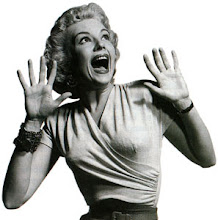Trespass has chosen to honour the late writer/director John Hughes today. Hughes was the man behind classics such as Pretty in Pink, Weird Science and Ferris Bueller’s Day Off and as such a champion of Generation X. Sadly it was a year ago today that the 80s icon died of a heart attack at just 59. His premature death was a blow for the children of the 80s who had grown up with his teen films and his comedy movies. For most of us Gen-Yers, Hughes’ most celebrated film came out before we were born, or whilst we were too young to be the target audience, but thanks to older siblings his films filtered through, forever emblematic of that era.
Teenage experience
Hughes will forever be associated with Teen films. Known as the man who gave the genre creditability, Hughes changed the way teenagers are presented in films and in doing so his films became a part of the 80s pop culture influencing not just films, but fashion and music for a generation.
Hughes’ films that centred around the American high-school experience showed their tribal nature and the sense of alienation many teens feel. His films had the popular kids and the geeks, the jocks and the outsiders. Arguably Hughes then also defined teenagers, by giving them stereotypes to associate with, most viewers knowing they had a lot more in common with Hughes’ geeks than prom queens and rich pretty boys. Whether you felt a kindred spirit in Pretty in Pink’s Duckie or The Breakfast Club’s Allison, Hughes’ teenage audience knew one thing for certain, they didn’t want to end up like Hughes’ adults. The adult characters in these films were bullies who resented teenagers or clueless parents, completely out of touch with their children.
Racism and Classism
For all the praise that is being heaped on Hughes today, it is important to remember that not everyone is that enamoured by his films. Over the years suggestions that Hughes’ films are racist and classist have been put forward. The incredibly un-pc representation of an Asian exchange student- ridiculously called Long Duk Dong in Sixteen Candles and the overwhelming absence of major characters of colour in his films has caused some commentators concern. The elevated social standing of many of his characters has too been pointed at as a criticism of his film. If only writing about rich, mainly white characters was a crime, then poor Wes Anderson and Noah Baumbach would be in serious danger. Sticking to writing about ethnic groups and social situations that you are familiar with, isn’t uncommon, or prejudice. Given that Hughes films often had (though not always convincingly) characters from the wrong side of the tracks, it is a bit unfair to cast him as a classist.
The charge of racism is a lot more complex and tricky to unlock. Personally it wasn’t something I ever noticed in Hughes’ films, but while they may be products of their time, jokes at the expense of someone’s race isn’t okay. While most commentators, whether they’re fans of Hughes films or not don’t see intentional racism in his films, it should be acknowledged that there are others who disagree, and unfortunately with characters like Long Duk Dong, Hughes gave them ammunition.
Here are some far more researched and articulate arguments on the topic of race in Hughes films;
Alison MacAdam’s article Long Duk Dong: Last of the Hollywood Stereotypes?
Kristi York Wooten’s article John Hughes Films Weren’t Racially Diverse, but That’s OK
Hits and Misses
Not everything Hughes touched turned to gold, and after his 80s heyday Hughes had his fair share of cinematic flops. While during the 90s Hughes did make Macaulay Culkin a star, writing all of the Home Alone films, it’s fair to say that despite the huge success of that series, Hughes work after the 80s was flimsy family film fodder, including the popular but overly sequelled Beethoven films and the box office bombs of Curly Sue (1991, the last film he directed), Baby’s Day Out (1994) and Flubber (1997).
While it is sad that Hughes film career petered out over the last decade, it is credit to his writing that people still love his films and still hold many of his characters dear.
"Life moves pretty fast. You don't stop and look around once in a while, you could miss it."- the immortal words of Ferris Bueller
Images 1,2,3,4

